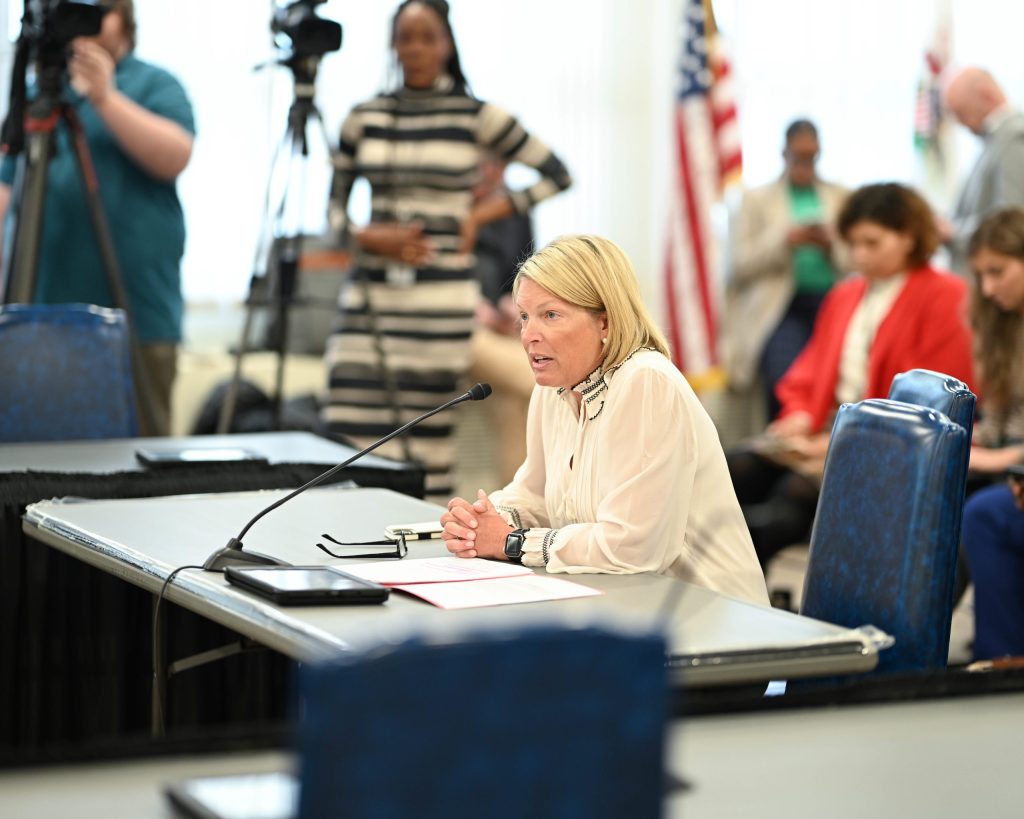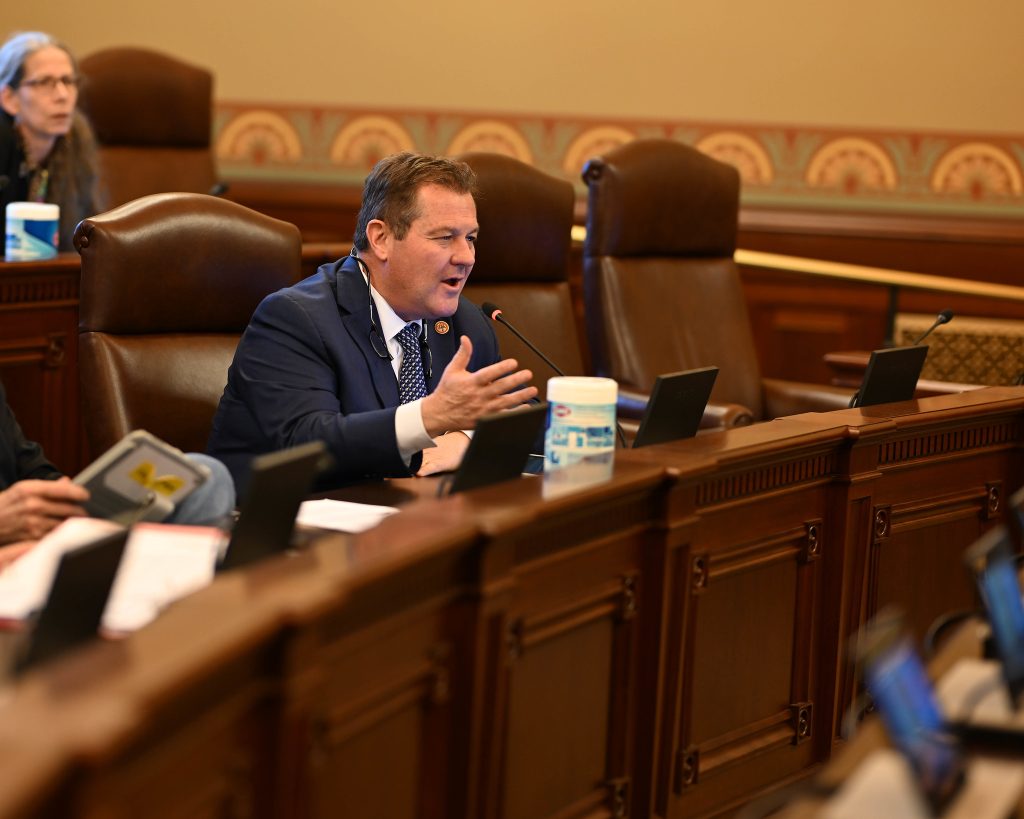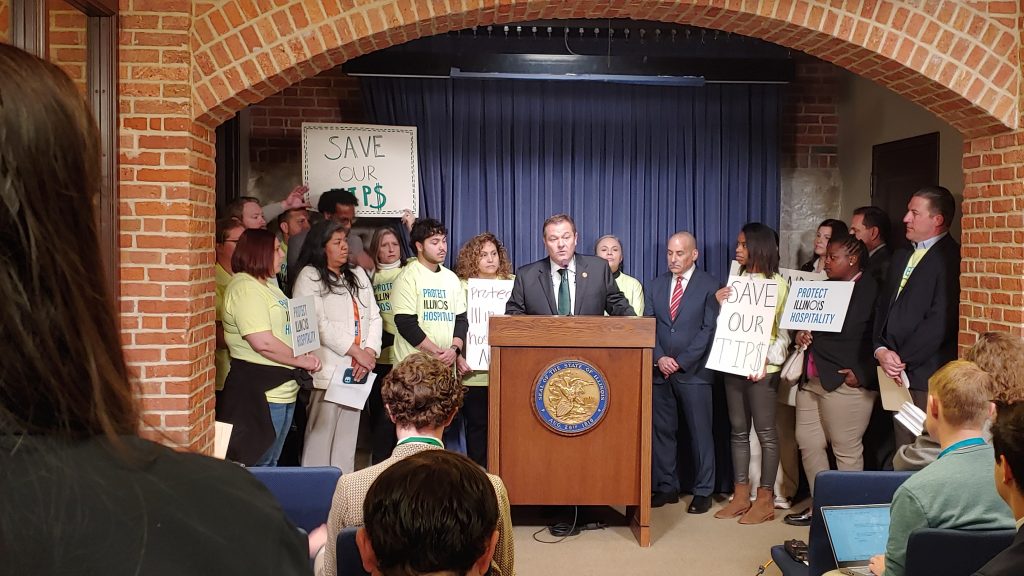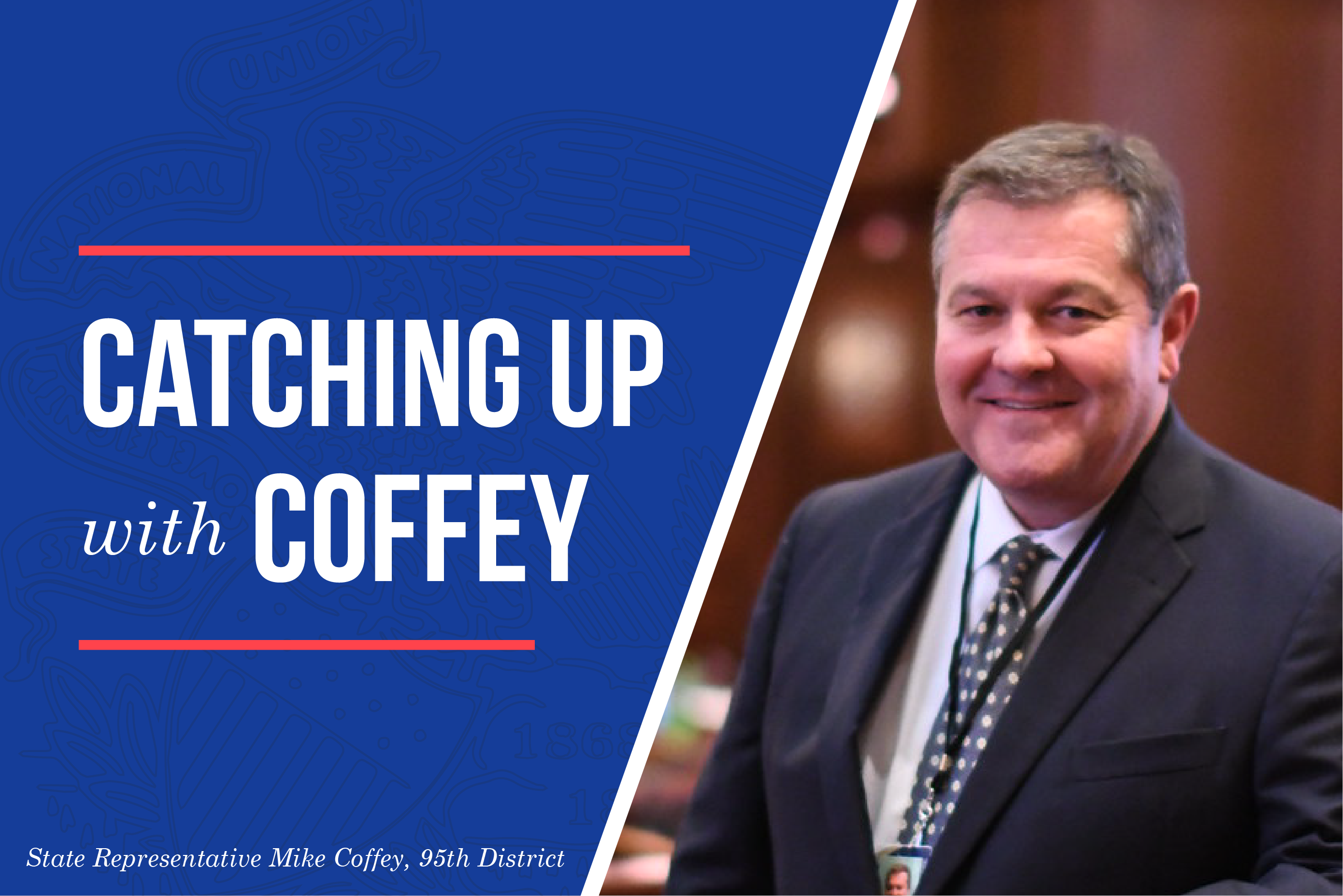Priorities | Ethics | Human Trafficking
GENERAL ASSEMBLY
DEMOCRATS PRIORITIZE BANNING KANGAROOS, HOP OUT OF TOWN. After a legislative session day was abruptly canceled in the House of Representatives during a deadline week for legislation to pass out of committees, House Minority Leader Tony McCombie released the following statement:
“Republicans showed up with good bills for consideration. Bans on kangaroos and exotic cats made the cut while Republican bills to reduce taxes, hold criminals accountable, and strengthen families were blocked by Democrats. The priorities of this chamber are upside down and it’s immoral to leave early while so much work remains.”

While House Republicans were busy fighting to provide relief for working families, improve public safety, and fight health care worker shortages, Democrats prioritized a ban on kangaroo ownership.
Unfortunately, this is an all-too-common experience in Springfield. The majority party continually puts politics before people and refuses to move Republican bills, despite the fact that these measures would improve the lives of not only the millions of residents we represent, but all Illinoisans.
The session week that abruptly ended on Thursday, April 4, was the final week for standard committee consideration of the bills filed by members of the Illinois House. The more than 2,000 bills filed in the House this spring all had to get through committees to be considered on the House floor for further discussion and debate. Most of the committees of the Illinois House held lengthy meetings this week to look at the 810 bills that had been “posted for hearings.” Only about one-quarter of these bills (213 of the 810 bills posted) received favorable votes and were reported to the House floor for further action.
The House committee deadline was the end of the road for many of the bills filed this spring by Illinois House Republicans. Of the 213 bills reported to the floor this week, only 32 bills (15% of the total) were filed by Republican members of the House. The overall bill totals that will face the House when they return to full action next week match this percentage and ratio. Of the total of 507 House bills out of committee to the floor this spring, 73 bills (14% of the overall total) were filed by Republican members of the House. The House will re-convene on Wednesday, April 10 to consider bills on the floor for further legislative action.
Legislators eye Friday’s deadline to move bills out of Illinois House committees. State representatives are debating a plethora of bills this week in committees because there’s a deadline approaching. Some state lawmakers are disappointed their bills may not see the light of day.
Friday is the deadline for the Illinois House to move bills out of committees for floor action.
State Representative Mike Coffey is pushing to extend deadlines for reduced or zero carbon dioxide emissions by 10 years. HB4734 would give the state more time to replace coal-fired energy without causing blackouts and brownouts.

“There has to be more commonsense about the direction of energy in Illinois. We certainly cannot keep shutting down coal plants and replace them with solar and wind farms that generate a fraction of power needed to meet our demands. The state needs more time and long-term goals to meet objectives of their agenda.”
State Rep. Dan Ugaste, R-Geneva, said he’s got a property tax relief bill that likely won’t get called.
“Every chairman has a different criteria they might use [when deciding what bills to call]. You have to go ask them to call your bills. [A lot of my bills] are not getting called, and many Republican bills aren’t getting called. The vast majority are not,” said Ugaste. “I don’t file bills for the sake of filing bills.”
Ugaste is a chief sponsor of state Rep. Tim Ozinga’s, R-Mokena, House Bill 4866, which Ugaste said would provide $82.5 billion in property tax relief to Illinoisans.
“Something we should all get behind, yet nothing is happening on it,” said Ugaste.
Illinois has among the highest property taxes in the country.
BUDGET
Illinois’ March 2024 revenue growth came from only two cash flow lines. State revenue numbers tracked and compiled by the Commission on Budget Forecasting and Accountability (CGFA) show that the entirety of March 2024 year-over-year revenue growth came from: (i) federal funds from Washington, D.C., and (ii) money paid by Illinois residents in income taxes. All other general-funds revenue sources combined yielded a net decline of $58 million below the money numbers brought in by these lines in March 2023. These declines included drops in net revenues from corporate income taxes, from taxes on electricity, natural gas, and other supplies bought through public utilities, and from taxes imposed on cigarettes, liquor, wine, and beer. The March 2024 revenue report was published on Tuesday, April 2.
Despite this broad-based pattern of Illinois tax revenue decline and stagnation, Illinois brought in $413 million more, overall, in March 2024 than was received in March 2023. Federal funds came in up $216 million, and individual income tax payments increased by $291 million. The March 2024 revenue numbers buttressed the conclusion of CGFA economic analysts and professional staff that the General Assembly needs to be prepared for a future overall decline in State revenues. CGFA staff reported on their findings and projections to the Illinois House Revenue Committee on March 14, 2024. CGFA’s overall forecast includes the office’s projections concerning FY25, the fiscal year that begins July 1, 2024. CGFA’s forecast has been posted as a public document.
CORRUPTION
New poll numbers show Illinois voters strongly support ethics reform. House Republicans have already lined up behind a bipartisan push to allow voter-led constitutional initiatives aimed at honesty in government, and to enact other urgently needed reforms against public corruption. A key component of this reform package will give Illinois voters the chance to circulate petitions, sign their names, and put honesty-in-government rules on the ballot for enactment as laws, in the same manner as voters can do in more than 25 other states. Now, polling numbers show strong public support for these measures, which have been stalled in both houses of the Democrat-controlled Illinois General Assembly.
Other items in the popular ethics reform package include a ban on ex-legislators drawing a taxpayer-funded pension while awaiting trial, and a statutory ban on legislators casting votes on issues where they have a conflict of interest. Former Governor Pat Quinn, a Democrat, has added his support to the bipartisan moves.
CRIMINAL LAW
Capitol Crimes: “In Our Own Backyards.” It is happening in our communities. Often in our own backyards. Modern day slavery, also known as human trafficking, is occurring right under our noses.
Human Trafficking is a crime of exploitation. Traffickers profit at the expense of their victims by forcing them to commit illegal acts, perform free labor, and/or engage in commercial sex. Victims can be of any age, race, ethnicity, sex, gender identity, sexual orientation, nationality, immigration status, cultural background, religion, socio-economic class, and education attainment level.
The most vulnerable are often targeted by traffickers: Children in the child welfare and juvenile justice systems, including foster care; runaway and homeless youth; individuals with substance use issues; migrant laborers, including undocumented workers and participants in visa programs for temporary workers; persons with limited English proficiency; persons with disabilities; and victims of intimate partner violence or other forms of domestic violence.
Human Trafficking takes an unimaginable toll on the lives of it victims. Survivors who not only struggle to overcome the physical and emotional impact of their enslavement must also deal with the legal ramifications of their actions from when they were trafficked.
Several Illinois lawmakers talk to Capitol Crimes’ Dean Abbott about their efforts to combat human traffickers and make it easier for survivors of trafficking to get their lives back on track.
Rep. Nicole La Ha Bill to Extend Prosecution Window for Crimes Against Minors Passes Committee. State Representative Nicole La Ha’s HB 5467, which Rep. Coffey supports too, has unanimously passed committee, receiving bipartisan support. This important bill seeks to extend the prosecution window for crimes against minors.
Under the provisions of HB 5467, when the victim is under 18 years of age at the time of the offense, a prosecution for involuntary servitude, involuntary sexual servitude of a minor, or trafficking in persons and related offenses may be commenced at any time, removing the previous limitation of within 25 years of the victim attaining the age of 18 years.
HB 5467 represents a significant step forward in the ongoing efforts to combat human trafficking, safeguarding the rights and well-being of minors across the state of Illinois.
La Ha’s human trafficking bill will next go before the full Illinois House for consideration. Rep. Nicole La Ha is committed to continuing the fight against human trafficking.
JOBS

Changes to tipped wages law would hurt tipped workers, businesses, and customers. Legislation proposed in Illinois would change wages for tipped workers across the state. Minimum wage would be mandated under the new law, forcing restaurants to restructure their operations.
State Representative Mike Coffey joined business leaders and the Illinois Retail Merchants Association (IRMA) to oppose the legislation, saying it would have a negative impact on employees and business owners.
“This legislation would cause turmoil in the service industry, causing job creators to cut good-paying positions and putting these businesses at risk of closure,” Rep. Coffey said. “Ultimately, consumers who are already feeling the higher cost of living in this state will have to pay more to offset the higher labor costs.”
Rep. Coffey continued, “As I’ve traveled the district, employees who have excelled at providing service to residents have asked me to stand up and fight against this bill. They are concerned their take-home pay will decrease and businesses will close their doors. We must do everything possible to encourage businesses in this state to grow and not saddle them with additional burdens.”
HB 5345 amends the Minimum Wage Law and would require all businesses who currently employ tipped workers to compensate employees at $15 an hour, beginning in 2025. After a delayed committee hearing which saw House Democrats sub in several members to get the bill passed, HB 5345 passed out of the House Labor & Commerce Committee on a 17-11 vote. House Republicans were united in our opposition to this ill-conceived legislation and several House Democrats joined us in opposition to passage of the bill.
